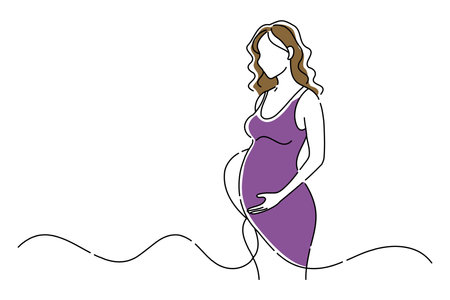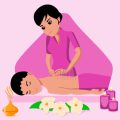Introduction to Postnatal Depression in the UK
Postnatal depression (PND) is a significant mental health concern that affects many mothers across the United Kingdom. It typically develops within the first year after childbirth and can have a profound impact on both the mother’s wellbeing and her ability to care for her baby. According to the NHS, around 1 in 10 women experience postnatal depression, although some studies suggest the actual figure could be higher due to underreporting and stigma surrounding mental health issues.
The cultural context in the UK plays a key role in shaping how new mothers perceive and access support for postnatal depression. While public awareness of mental health has improved over recent years, many mothers still feel pressure to present themselves as coping well, which may delay help-seeking. Additionally, expectations around motherhood and family life differ across communities, influencing attitudes towards emotional struggles during the postnatal period. The table below summarises key facts about postnatal depression among UK mothers:
| Aspect | Details |
|---|---|
| Prevalence | Approximately 10% of new mothers in the UK |
| Main Symptoms | Low mood, fatigue, anxiety, difficulty bonding with baby |
| Cultural Influences | Stigma, societal expectations, varying levels of family support |
This overview highlights why it is vital for healthcare professionals such as GPs and health visitors to play an active role in identifying and supporting mothers experiencing postnatal depression within the unique cultural landscape of the UK.
2. The Role of GPs in Identifying and Managing Postnatal Depression
General Practitioners (GPs) are often the first point of contact for mothers experiencing postnatal depression in the UK. Their role is critical in ensuring early detection, accurate diagnosis, and timely intervention. GPs use a combination of clinical experience, established guidelines such as those from NICE, and culturally sensitive communication to identify mothers who may be struggling.
Screening and Early Identification
At routine postnatal checks, usually around six to eight weeks after childbirth, GPs proactively screen for signs of postnatal depression. They may use validated tools such as the Edinburgh Postnatal Depression Scale (EPDS) alongside open conversation to encourage mothers to share their feelings in a non-judgemental setting.
| Screening Method | Description |
|---|---|
| Edinburgh Postnatal Depression Scale (EPDS) | A self-reported questionnaire designed to highlight symptoms of postnatal depression. |
| Clinical Interview | Open-ended questions about mood, sleep, appetite, and emotional wellbeing. |
| Family/Partner Input | With consent, GPs may seek observations from close family members or partners. |
Diagnosis and Assessment
If screening raises concerns, GPs will conduct a thorough assessment to differentiate between baby blues, which are common and short-lived, and more persistent depressive symptoms indicative of postnatal depression. This involves evaluating both psychological and physical health, social circumstances, and risk factors such as previous mental health issues.
Medical Support and Care Pathways
Once diagnosed, GPs discuss care options with the mother, ensuring she is involved in every decision. Treatment can include:
- Psychoeducation: Explaining the nature of postnatal depression and normalising the experience.
- Talking Therapies: Referrals to NHS-funded counselling or cognitive behavioural therapy (CBT).
- Medication: Prescribing antidepressants when clinically appropriate, with consideration for breastfeeding status.
- Ongoing Monitoring: Regular follow-up appointments to review progress and adjust care as needed.
Supportive Approach: Building Trust with Mothers
UK GPs are trained to provide compassionate care that respects cultural differences and the stigma sometimes associated with mental health. By fostering a trusting relationship, they help mothers feel safe discussing sensitive topics. Collaborative working with midwives, health visitors, and mental health specialists ensures holistic support throughout recovery.

3. Health Visitors: Providing Community-Based Emotional and Practical Support
Health visitors play a vital role in supporting UK mothers with postnatal depression, acting as both a bridge to NHS services and a source of community-based care. As registered nurses or midwives with specialist public health training, they work closely with new mothers, particularly during the critical first year after childbirth. Their approach combines regular home visits and drop-in clinics, ensuring mothers are not isolated and have accessible support within their local area.
The Health Visitor’s Home Visit: What to Expect
| Aspect | Description |
|---|---|
| Frequency | Usually at key milestones (e.g., 10-14 days after birth, 6-8 weeks, 9-12 months), with additional visits if needed |
| Setting | Mother’s home or community clinic for convenience and comfort |
| Main Focus | Mental wellbeing, infant care, breastfeeding advice, safety at home |
Emotional Reassurance in a Familiar Environment
Health visitors offer emotional support by listening without judgement and helping mothers express their feelings. This is particularly important in British culture, where stigma around mental health may make it harder for some women to seek help. By building trust during home visits, health visitors can gently encourage open conversations about mood changes and coping strategies.
Practical Advice Tailored to Individual Needs
Beyond emotional reassurance, health visitors provide practical guidance on topics such as infant feeding, sleep routines, and accessing local resources. They also signpost mothers to peer support groups or therapy services when needed, ensuring a seamless link between community resources and professional healthcare.
The Health Visitor’s Role in Early Intervention
Early identification of postnatal depression by health visitors allows for timely referral to GPs or specialist mental health teams. This collaborative approach ensures that mothers receive the right level of care as soon as possible, helping prevent escalation of symptoms and promoting family wellbeing.
Collaboration between GPs, Health Visitors, and Other Services
Effective support for mothers experiencing postnatal depression in the UK relies heavily on strong collaboration between General Practitioners (GPs), Health Visitors, and a wide network of other healthcare and social services. This multidisciplinary teamwork ensures that mothers receive holistic care tailored to their individual needs, minimising gaps in support and reducing the risk of mothers falling through the cracks.
The Importance of Teamwork
GPs and Health Visitors serve as primary points of contact for new mothers, but they rarely work in isolation. Regular communication—through case meetings, shared electronic records, or joint visits—enables these professionals to pool their expertise and maintain continuity of care. Such collaboration is vital for timely identification of postnatal depression symptoms and swift intervention.
Signposting and Safe Referral Pathways
An essential aspect of this collaborative approach is signposting—directing mothers to appropriate support services—and ensuring safe referral pathways. When a mother presents with signs of postnatal depression, GPs and Health Visitors may refer her to mental health specialists, local peer support groups, or social services as needed. The process prioritises safeguarding, confidentiality, and respect for the mother’s preferences.
| Professional/Service | Main Role | Referral/Signposting Examples |
|---|---|---|
| GP | Assessment, initial diagnosis, medication management | Counselling services, perinatal mental health team |
| Health Visitor | Regular check-ins, emotional support, family assessment | Children’s centres, parenting programmes |
| Mental Health Team | Specialist psychological interventions | Crisis teams, talking therapies |
| Social Services | Practical support, safeguarding children/families | Housing support, financial advice services |
Best Practices for Safe Collaboration
The NHS recommends clear documentation of all referrals and follow-ups to ensure no mother is left unsupported. Regular multi-agency meetings foster an environment where concerns can be raised safely and solutions developed collectively. Importantly, professionals are trained to recognise when urgent escalation is needed—for example, if there are safeguarding concerns or signs of severe mental illness.
5. Culturally Sensitive Approaches and Addressing Stigma
In the UK’s multicultural society, GPs and health visitors play a vital role in ensuring postnatal depression (PND) support is both effective and culturally appropriate. Recognising the diversity of backgrounds among mothers is essential for providing tailored care that respects individual values, beliefs, and experiences. By adopting culturally sensitive approaches, these professionals help to reduce stigma surrounding PND and encourage more mothers to seek timely help.
Understanding Diverse Backgrounds
Healthcare professionals are trained to consider cultural, linguistic, and religious factors when supporting mothers with PND. This may involve using interpreters during consultations or providing translated materials to ensure information is accessible. Additionally, GPs and health visitors strive to understand family structures, gender roles, and community attitudes towards mental health, which can influence how mothers perceive and manage their symptoms.
Practical Strategies for Cultural Sensitivity
| Strategy | Description | Example in Practice |
|---|---|---|
| Use of Interpreters | Ensuring clear communication by involving professional interpreters where English is not the first language. | Arranging interpreter services during appointments for South Asian or Eastern European mothers. |
| Culturally Relevant Resources | Providing leaflets, posters, or digital content in multiple languages and reflecting diverse experiences. | Distributing postnatal depression information in Urdu, Polish, or Somali as needed. |
| Community Engagement | Building relationships with local faith leaders or community groups to promote understanding of PND. | Collaborating with a mosque or church group to organise awareness sessions about maternal mental health. |
| Sensitivity to Beliefs | Respecting religious or cultural practices that may affect healthcare decisions. | Considering dietary restrictions during home visits or being mindful of prayer times when scheduling appointments. |
Tackling Stigma Around Postnatal Depression
Stigma remains a significant barrier preventing many mothers from seeking help for PND. GPs and health visitors actively work to normalise conversations about maternal mental health by:
- Open Dialogue: Encouraging honest discussions in a non-judgemental environment helps reassure mothers that they are not alone.
- Education: Dispelling myths about PND through evidence-based information reduces misconceptions within families and communities.
- Signposting Support: Guiding mothers towards peer support groups or counselling services that understand their cultural background promotes engagement with care options.
The Importance of Building Trust
Cultural sensitivity isn’t just about language or resources—it’s also about building trust. When GPs and health visitors demonstrate respect for each mother’s unique circumstances, they create a safer space for women to share their feelings without fear of judgement. This trust is crucial in encouraging early intervention and improving outcomes for mothers experiencing postnatal depression across all communities in the UK.
6. Practical Tips and Resources for UK Mothers
If you are a mother experiencing postnatal depression in the UK, it is vital to know that support is available and you are not alone. Both GPs and Health Visitors play a crucial role in guiding you toward recovery. Below are clear, actionable steps and information about local NHS and community resources to help you manage postnatal depression safely and effectively.
Seek Professional Help Early
- Contact Your GP: Make an appointment with your GP as soon as you notice symptoms such as persistent sadness, anxiety, irritability, or difficulty bonding with your baby. Early intervention leads to better outcomes.
- Speak with Your Health Visitor: Health Visitors can provide practical advice, monitor your mental health during routine visits, and refer you to specialist services if needed.
Utilise Local NHS Services
| Resource | Description | How to Access |
|---|---|---|
| NHS Talking Therapies (IAPT) | Counselling and therapy services for mild to moderate depression and anxiety. | Self-refer online or ask your GP for a referral. Find a service |
| Perinatal Mental Health Teams | Specialist teams supporting mothers with complex or severe postnatal depression. | Your GP or Health Visitor can refer you directly. |
| Health Visitor Clinics | Regular check-ins and support groups for new mothers. | Contact your local Health Visiting team via your GP surgery or children’s centre. |
Get Involved in Community Support
- Mums’ Groups: Join local parent-and-baby groups or online forums. Peer support can reduce isolation and provide reassurance from others facing similar challenges.
- Charities: Organisations like PANDAS Foundation UK, NCT (National Childbirth Trust), and Maternal Mental Health Alliance offer helplines, support groups, and practical advice tailored for UK families.
Practical Self-Care Strategies
- Aim for rest where possible—accept help from friends or family with chores or childcare.
- Create a simple daily routine to maintain structure.
- Spend time outdoors when you can; fresh air and gentle exercise support wellbeing.
If You Need Urgent Help
If you feel unable to cope or have thoughts of harming yourself or your baby, contact your GP immediately, call NHS 111, or go to A&E. In an emergency, dial 999.
Your Wellbeing Matters
No one should face postnatal depression alone. With the right support from GPs, Health Visitors, the NHS, and community resources, recovery is possible. Don’t hesitate to reach out—you deserve help and understanding on your journey to better mental health.


